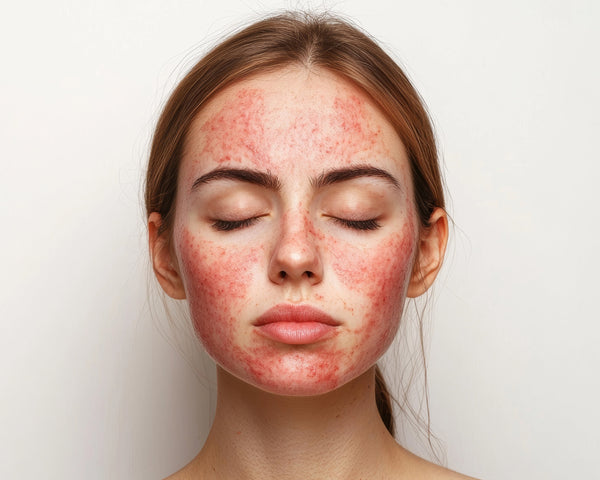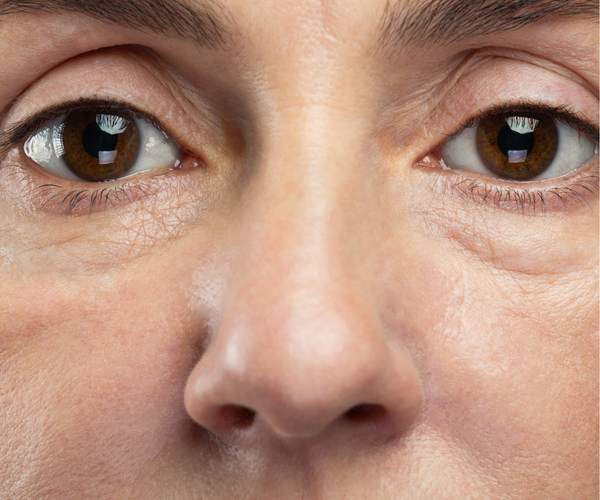What's Your Skin Type?

When it comes to skincare, one size does not fit all. Choosing products tailored to your skin type is one of the most important steps in achieving healthy, glowing skin. But how do you determine your skin type, and why does it matter so much? Let’s explore why understanding your skin type is a game-changer for your skincare routine.
What Are the Different Skin Types?
Skin types are generally classified into five categories:
- Normal Skin: Balanced skin with minimal sensitivity, fine pores, and a healthy glow.
- Dry Skin: Skin that feels tight, appears flaky, and is often prone to irritation.
- Oily Skin: Skin with excess sebum, often shiny, and prone to acne and blackheads.
- Combination Skin: A mix of dry and oily areas, typically with an oily T-zone (forehead, nose, and chin).
- Sensitive Skin: Skin that reacts easily to products, often showing redness or irritation.
Why Knowing Your Skin Type Matters
Your skin type dictates its unique needs. Using the wrong products can do more harm than good, leading to breakouts, dryness, or even premature aging. Here’s why knowing your skin type is crucial:
1. Prevents Irritation and Breakouts
Using heavy, oil-based products on oily skin can clog pores and trigger acne. Similarly, using products with harsh ingredients on sensitive skin can cause redness and inflammation. Choosing products that suit your skin type minimizes these risks.
2. Maximizes Product Effectiveness
When you use products designed for your specific skin type, they can target your unique concerns more effectively. For instance, hydrating serums work wonders for dry skin, while mattifying products help control oil in oily skin.
3. Saves Money and Time
By understanding your skin type, you avoid wasting money on products that don’t work for you. You’ll spend less time troubleshooting skincare mishaps and more time enjoying a radiant complexion.
4. Enhances Long-Term Skin Health
Using the right products helps maintain your skin’s balance, which is essential for long-term health. Balanced skin is better equipped to fend off environmental stressors and signs of aging.
How to Determine Your Skin Type
If you’re unsure about your skin type, here are a few tips to help you figure it out:
- Cleanse and Observe: Wash your face with a gentle cleanser and don’t apply any products for an hour. Pay attention to how your skin feels. Is it tight, shiny, or a mix of both?
- The Blotting Test: Gently press a tissue onto your face after a few hours. If it picks up oil from all over, you have oily skin. If oil only comes from your T-zone, you likely have combination skin. If there’s no oil, you probably have dry or normal skin.
- Consult a Professional: Dermatologists or estheticians can provide an in-depth analysis of your skin type and recommend products accordingly.
Tips for Choosing the Right Products
- Read Labels: Look for keywords that match your skin type, such as “hydrating” for dry skin or “non-comedogenic” for oily skin.
- Patch Test: Test new products on a small area of skin to ensure they don’t cause a reaction.
- Stick to the Basics: Start with a gentle cleanser, a suitable moisturizer, and sunscreen. Once you understand your skin’s needs, you can experiment with serums and treatments.
Final Thoughts
Your skin is as unique as you are. Taking the time to understand your skin type and its needs is the foundation of a successful skincare routine. At Three Notes, we believe in natural skincare that works with your skin, not against it. That’s why our products are crafted with gentle, nourishing ingredients suitable for a variety of skin types.
Start by getting to know your skin better—it’s the first step toward a healthier, more radiant you.




